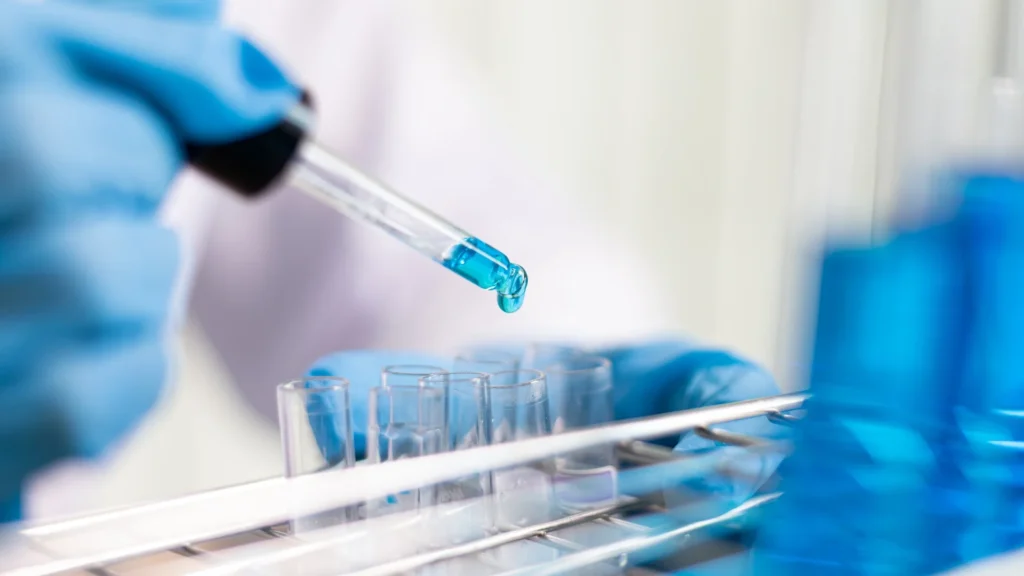Biotechnology is an essential tool for global sustainability, using biological systems to generate innovative solutions in the production of food, energy and materials, as well as in environmental protection. This discipline not only seeks to reduce our ecological impact, but also to improve the health and efficiency of processes.
Below, we explore the key applications of biotechnology in sustainable production:
1. Agriculture and Food Production
Biotechnology revolutionizes agriculture to make it more sustainable and safer, using both organisms and their components to improve crops and nutrition:
- Beneficial Microorganisms: Microbial and fungal biotechnology is crucial. Some microorganisms (bacteria, fungi and algae) act as biofertilizers by fixing nitrogen, solubilizing phosphates and producing growth hormones, reducing the need for chemicals.
- Genetically Engineered Improved Crops: Genetic engineering makes it possible to develop “intelligent” crops that are resistant to pests or capable of thriving in adverse conditions. On the other hand, crop biofortification has been postulated as one of the most important scientific advances. One example is golden rice with a high vitamin A content, which combats malnutrition and the problems of vision loss that this deficiency was causing with a high incidence mainly in Asian regions. Transgenic plants can also be used in phytoremediation to absorb heavy metals or even produce biodegradable bioplastics.
- Microbial Food Production by Precision Fermentation: Genetically modified microorganisms are key in the food industry to produce vitamins, amino acids, proteins and enzymes. For example, the Fusarium fungus is grown in bioreactors to produce foods such as Quorn, a high-protein, low-fat meat substitute, and Aspergillus oryzae is used to produce enzymes and nutritional compounds.
2. Industrial Bioprocesses
Industrial biotechnology focuses on the sustainable production of energy, materials and chemicals, optimizing processes through biocatalysis and large-scale cultivation systems:
- High Value Enzymes and Bioproducts: Fungi are ideal for producing complex enzymes, secondary metabolites and proteins. Thus, optimization of strains in bioreactors accelerates industrial production.
- Biofuels and Bioenergy: Biotechnology is vital for generating biofuels (bioethanol, biodiesel, biogas) from biomass, offering alternatives to fossil fuels. In addition, microalgae and cyanobacteria are “green molecular factories” that produce lipid-rich biomass. They are grown in photobioreactors, devices optimized to convert light into biomass in an efficient and controlled manner. In terms of enzymatic biocatalysis, the enzyme lipase can catalyze the production of biodiesel in a cleaner way.
- Sustainable Materials (Bioplastics): Biotechnology makes it possible to produce biodegradable bioplastics, such as polyhydroxyalkanoates (PHA), which can replace petroleum-derived plastics. PHAs are produced by bacteria in bioreactors from various carbon sources, including industrial waste such as crude glycerol from biodiesel production.
3. Waste Treatment and Bioremediation
Environmental biotechnology uses biological organisms and processes to clean up pollution:
- Bioremediation and Phytoremediation: Bioremediation uses microorganisms (bacteria, fungi) to degrade or sequester contaminants such as heavy metals, pesticides and toxins. Fungi, for example, can degrade chemicals and plastics. On the other hand, phytoremediation uses plants to absorb or transform contaminants.
- Advanced Wastewater Treatment: Bioreactors are essential in wastewater treatment plants. Membrane bioreactors achieve high contaminant removal and water recovery. Sequential batch reactors are efficient in the removal of pollutants and nutrients.
4. Applied Health Medicine and Biotechnology
Biotechnology drives innovations in human health, from drug production to disease prevention, often with enzymatic biocatalysis facilitating their synthesis:
- Pharmaceuticals and Bioactive Compounds: Biotechnology provides antibiotics and pharmaceuticals through bioactive compounds such as antimicrobial peptides.
- Plants as Pharmaceutical Biofactories: Transgenic plants can act as bioreactors to produce high-value pharmaceuticals, including monoclonal antibodies for cancer or vaccine antigens.
Bioreactors and fermenters are at the heart of many biotechnological processes. In them, microorganisms and cells work under controlled conditions to produce everything from food and pharmaceuticals to biofuels and sustainable materials. Thanks to their design, natural processes can be scaled up efficiently, safely and cleanly, turning the microscopic into tangible solutions for agriculture, industry, health and environmental care.



